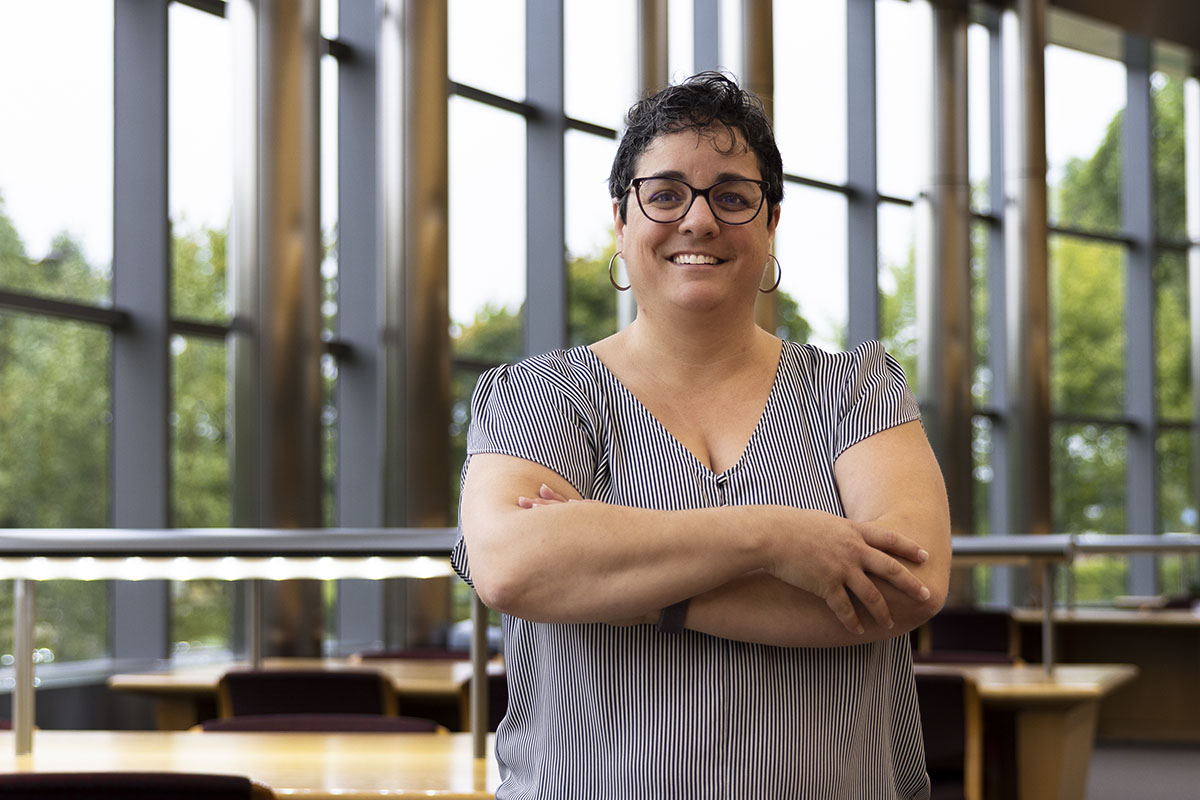UM-Flint's Cunningham awarded $1.7M to study gap between theory and practice in K-5 math teaching

For most of Elizabeth Cunningham's career—first as an elementary math teacher, then as a professional development facilitator, and now as an associate professor of mathematics education at the University of Michigan-Flint—she noticed a serious gap between what researchers were learning about how kids learn math and how teachers were being trained to teach the subject.
"Sharing research on children's learning progressions was the focus of much of the professional development that I facilitated, and it seemed that this knowledge was only being shared in post-training workshops and courses," Cunningham said. "I always heard from teachers in those courses, 'Why didn't I learn about this in my preservice training? Why am I only learning about this now?' This theory shows up in the math curriculum packages that school districts choose. Still, teachers weren't being taught why the curriculum was developed and delivered in that specific way, or how they might use it based on the unique learning needs of their classrooms."
Curious if incorporating math education theory into preservice training had a positive impact on the mathematical thinking and reasoning skills of K-5 students, Cunningham collaborated with Traci Shizu Kutaka, research assistant professor at the University of Virginia, and Caroline B. Ebby, senior lecturer at the University of Pennsylvania's Graduate School of Education, to develop a research proposal that was recently awarded nearly $1.7 million from the U.S. Department of Education's Institute of Education Sciences. According to UM-Flint's Office of Research, the grant is the largest-ever research award with the downtown campus serving as the lead institution.
The four-year study will focus on three learning progression frameworks developed by the Ongoing Assessment Project. These frameworks translate research theory into practical learning progressions that PK-6 math teachers can use to understand how to best serve their students.
"When I joined the faculty at UM-Flint 10 years ago, we began incorporating these learning progressions into the mathematics teacher curriculum, so our teacher trainees are already using these approaches in their classrooms," said Cunningham. "This grant will help us gauge the impact of including learning progressions in preservice training on students' mathematical thinking and skill development in these novice teachers' classrooms."
Cunningham and her collaborators will begin their studies by evaluating the coursework of UM-Flint elementary education students to determine how learning progressions influence their understanding of their future students' mathematical reasoning and thinking and how they might engage with different types of math problem structures and contexts.
The study will begin with nearly 25 third-year elementary education students in the fall 2024 semester and follow them through their first few years of teaching. The research team will also monitor the novice teachers' students' standardized math test scores to determine whether or not this preservice training positively impacts this outcome.
"We hope that by helping teachers understand why children are doing the things they do and why the curriculum is designed in a specific way, they'll have more confidence and skill in guiding their students in mathematical reasoning," Cunningham said. "This study also gives us the opportunity to partner more closely with the elementary schools in our area, see how our math teachers are performing in real-time, and, ultimately, help the children in our community be better prepared to achieve whatever dreams they have for their future."
Related Posts
No related photos.
Kat Oak
Kat Oak is the communications specialist for the College of Arts, Sciences, and Education. She can be reached via email at [email protected].